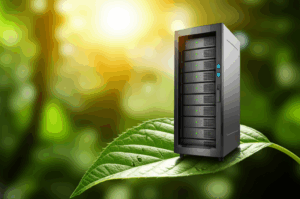- Understanding Eco-Friendly Hosting Practices
- The Benefits of Choosing Eco-Friendly Hosting
- Is Eco-Friendly Hosting Always the Best Choice? Weighing the Drawbacks
- Making the Switch: Choosing an Eco-Friendly Hosting Provider
- Eco-Friendly Hosting: A Responsible Choice for the Future
Eco-Friendly Hosting: Best Sustainable Choice?
Eco-friendly hosting is becoming increasingly popular as businesses and individuals seek ways to reduce their environmental impact. But is it truly the best sustainable choice? With growing concerns about climate change and resource depletion, it’s crucial to understand the implications of our online activities. This article explores the world of green hosting, examines its benefits, weighs its drawbacks, and helps you determine if it’s the right choice for your online presence.
Understanding Eco-Friendly Hosting Practices

What exactly makes a hosting provider “eco-friendly”? It boils down to a commitment to minimizing their environmental footprint through various sustainable practices. These practices often involve:
Renewable Energy Sources: Green hosts power their data centers with renewable energy, such as solar, wind, hydro, or geothermal power. This reduces reliance on fossil fuels, a significant contributor to greenhouse gas emissions. Some providers even invest in carbon offsetting programs to neutralize their remaining emissions.
Energy-Efficient Infrastructure: Eco-friendly data centers utilize energy-efficient hardware and cooling systems. This includes using servers optimized for low power consumption and implementing technologies like free-air cooling to minimize energy usage.
Waste Reduction and Recycling: Responsible e-waste management is a key aspect of sustainable hosting. Green hosts prioritize recycling and responsible disposal of hardware components, reducing the environmental impact of electronic waste.
Sustainable Certifications: Look for certifications like Green-e, which verifies the use of renewable energy, or ISO 14001, which demonstrates a commitment to environmental management systems. These certifications provide third-party validation of a hosting provider’s green claims.
The Benefits of Choosing Eco-Friendly Hosting
Opting for green hosting offers several advantages:
Reduced Carbon Footprint: This is the primary benefit. By supporting providers committed to renewable energy and energy efficiency, you directly contribute to reducing greenhouse gas emissions and mitigating climate change.
Environmental Stewardship: Choosing eco-friendly hosting aligns with environmentally conscious values and demonstrates a commitment to sustainability. It allows you to contribute to a healthier planet through your online activities.
Improved Brand Image: Promoting your use of green hosting can enhance your brand image and attract environmentally conscious customers. It showcases corporate social responsibility and positions your business as a leader in sustainability.
Support for Renewable Energy Development: By choosing green hosting, you indirectly support the growth and development of the renewable energy sector, fostering innovation and a transition away from fossil fuels.
Potential Cost Savings (Long-Term): While not always the case, some energy-efficient practices implemented by green hosts can lead to lower operating costs, which may translate to competitive pricing for their services.
Is Eco-Friendly Hosting Always the Best Choice? Weighing the Drawbacks
While eco-friendly hosting offers numerous benefits, it’s essential to acknowledge potential drawbacks:
Cost: Green hosting can sometimes be slightly more expensive than traditional hosting. However, the price difference is often minimal and continues to decrease as renewable energy becomes more affordable.
Limited Availability: While the number of green hosting providers is growing, they might not be as prevalent as traditional hosting companies. This can limit your choices, particularly if you require specific server locations or specialized services.
“Greenwashing” Concerns: Some providers may exaggerate their environmental efforts. It’s crucial to research thoroughly and look for credible certifications to ensure genuine commitment to sustainability. Don’t be swayed by vague marketing terms without concrete evidence.
Making the Switch: Choosing an Eco-Friendly Hosting Provider
If you’re considering making the switch to green hosting, here are some key factors to consider:
Transparency: Look for providers that are transparent about their environmental practices. They should clearly outline their energy sources, efficiency measures, and certifications.
Renewable Energy Commitment: Verify the percentage of renewable energy used by the provider. Ideally, they should be using 100% renewable energy or actively investing in carbon offsetting.
Data Center Location: The location of the data center impacts the type of renewable energy used and the overall environmental impact. Consider providers with data centers powered by local renewable sources.
Pricing and Features: Compare pricing and features with traditional hosting providers to ensure you’re getting a competitive offering that meets your needs.
* Customer Support: Reliable customer support is crucial. Look for providers with responsive and helpful support teams.
Eco-Friendly Hosting: A Responsible Choice for the Future
Ultimately, eco-friendly hosting represents a responsible choice for businesses and individuals committed to environmental sustainability. While some drawbacks exist, the benefits of reducing your online carbon footprint, supporting renewable energy, and promoting a greener future significantly outweigh the potential limitations. By carefully researching and selecting a reputable green hosting provider, you can make a positive impact on the environment and contribute to a more sustainable digital world. As technology continues to evolve, embracing eco-friendly practices will be increasingly crucial in mitigating the environmental impact of our online activities. Making the switch to green hosting is not just a trend, but a necessary step towards a more sustainable future for the internet and the planet.











Leave a Reply